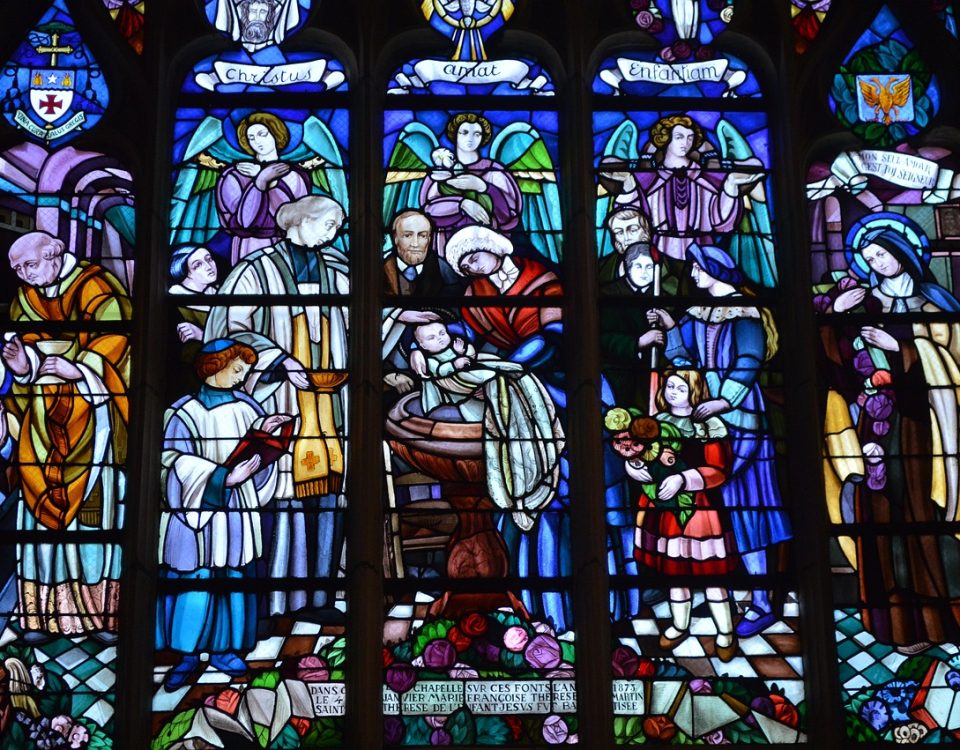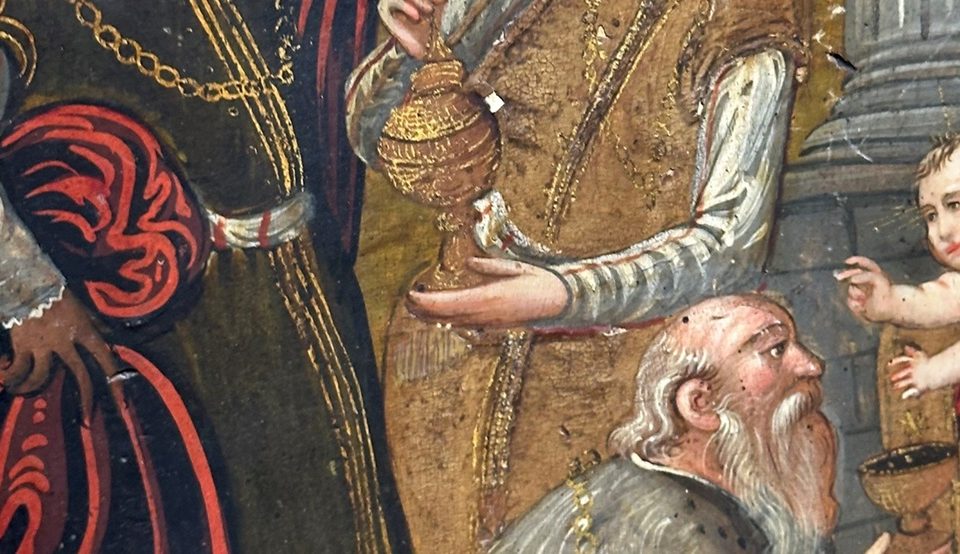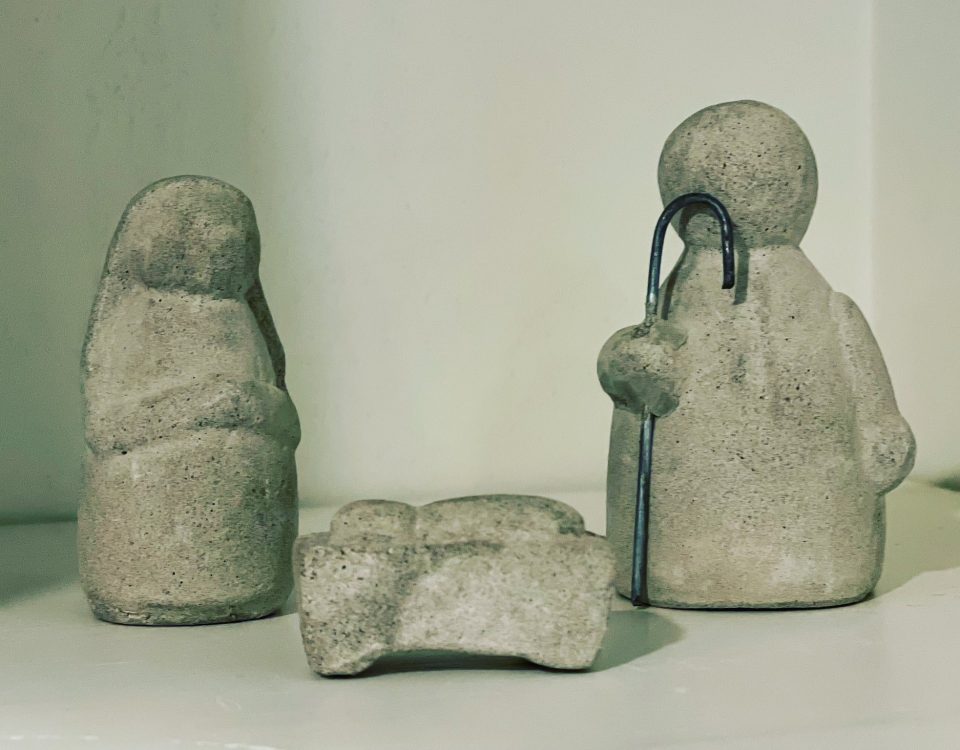Betrayed first, he was then arrested and arraigned before Annas and Caiaphas. Denied by his disciples, he stands, in our brief gospel text, before Pontius Pilate, procurator of Judea, pagan ruler of the Jews and the embodiment of Roman power, inhuman and violent. The weak before the strong, the provincial preacher, now the silent lamb: Jesus stands alone before the imperial eagle, the most powerful man he’d ever met, there only because his enemies wanted him dead, because they couldn’t do it themselves.
He’d got himself into this mess not so much for what he did as for what he said: “My Father is at work…so I am at work.” “[I]f you had believed Moses, you would have believed me.” “[B]efore Abraham…I AM.” “The Father and I are one.”[1] Blasphemy, they thought, insanity, a danger that must be put down; he couldn’t be ignored, he had to be killed. Hence the intrigue, that wicked kiss, the trumped-up charge: because he spoke of himself in such a way that people were beginning to think he was God—at work on the Sabbath just like God, bearer of the divine name just like God, one with the Father, of God, unlike the other prophets, different and divine. That was the root of it, of all their hatred and anger.
None of which, by the way, interested Pilate at all. Utterly disinterested in religious controversy, the Roman governor gets right to the point. He asks, for him, the only question that matters: “Are you the King of the Jews?” Hosannas offered just a few days earlier, Pilate knew only a little, but enough. He knew of the Jews’ silly dangerous dreams of messiahs, peasant hope of some sort of Davidic uprising. “King of the Jews”—the last free kings of Judea were called that, the Hasmoneans. “Are you the King of the Jews?” Never mind theological fantasies, this is Pilate’s concern. Who does Jesus think he is? Shall he be crushed by Roman power or simply left to his own idiosyncratic dreams? Is Jesus a king?
It’s a question Jesus does not answer. The most he ever says is “You say so.” “Are you the King of the Jews?” Jesus doesn’t answer the way Pilate wanted him to answer; instead of talking about kings, Jesus talks about a kingdom, just as he always had. “My kingdom is not of this world,” he said. “Everyone who belongs to the truth listens to my voice.”[2] That’s the answer Jesus gives; it’s the only thing he says to Pilate: whoever belongs to the truth listens to me; that’s my kingdom; it’s not like yours. Are you a king? What’s your agenda? What’s your politics? Those are the questions Pilate thought were important, the only questions that mattered. But which didn’t matter to Jesus, not as much as the question of truth, not as much as the love with which God so loved the world that he allowed his Son to stand before some petty bureaucrat to be questioned about his politics in some show trial of sinful stupidity, all of it but a prelude to a crucifixion.
“Everyone who belongs to the truth listens to my voice.” That’s the lesson, what we should take into our minds and into our hearts. Ruined, our religion, by so much nonsense, by so many bad preachers, by so many bad politicians; ruined by people, just simply ignorant of the Bible, who think Jesus thinks like they do, Christ’s is now a kingdom hard to find. Politicized almost utterly by all of it, it’s like we’ve all become Pilate, standing before a chained and solitary Christ, asking about his politics and his agenda, about who’d he vote for, about what he thinks of popes and presidents. All of these questions we think so important, which we throw at Jesus, seeking his endorsement, constructing false Christs for ourselves, our liberal and conservative false Christs: it is the trial we put our God on today, ready to beat him and crucify him, just like they did, if he doesn’t answer us the way we want him to. If Jesus doesn’t tell us exactly what we want to hear.
To be honest, in today’s gospel, I see myself more in Pilate than in Christ. I see so many of us more like Pilate than Christ. Not really interested in theology or belief, we just want to know what Jesus thinks. Conservatives and liberals both, most of us ignorant of the faith we say we profess, drunk on our broken politics, unable to see how the kingdom of God is different, how the love of God is different. Our brains so crowded and clouded with the noise and the hatred of our untethering social existence, we’ve forgotten how to hear the real words of God. Assuming Christ fits within our conventional modes of thought, within our ideological categories, we have a hard time even registering the words of Jesus Christ; hearing them, we don’t hear them. Like Pilate, we just keep asking the same question over again, “Are you the King of the Jews?” Oblivious to whatever on earth Jesus could possibly mean—truth, “What is truth?”—it is what many of us have become, unable to make sense of any of it, ignorant of truth in a trial that’s rigged.
Which is why, my friends, I beg you on this feast of Christ the King, that if you intend to call him your King, do your best to know what that means, to understand it and not co-opt it. Do your best to understand that to call Christ your King is to declare your loyalty and obedience to him, above all things—above your politics, your job, your family, your nation, all things, especially when you must suffer for it, when it costs you. It’s to understand that your ultimate loyalty is to the truth, as Jesus himself said—truth which is himself and which is his voice, and which you can only hear by the gift of the Holy Spirit. Which is why, before we can make sense of Jesus Christ, make sense of Christianity, Catholicism, the Church, the world, we must first listen and hear the voice of truth in Jesus Christ—again, as I said, by the light and gift of the Holy Spirit. It’s a gift we so clearly need again, another Pentecost to open our ears, so that this kingdom will come, on earth as it is in heaven, and that we will be his—faithful subjects of the Christ we today call King. Amen.
[1] John 5:17, 5:46, 8:58, 10:30
[2] John 18:33-37
© 2021 Rev. Joshua J. Whitfield










